Yen Bai Travel Guide: Best Time, Attractions & Tips
Travelers looking for breathtaking scenery, unusual cultural encounters, and a calm haven from city life can find nirvana at Yen Bai. Yen Bai provides something enchanted for everyone, whether your interests are piqued by the famous rice terraces of Mu Cang Chai, the peacefulness of Thac Ba Lake, or the varied customs of its ethnic minorities. MOTOGO Tours will reveal all you need know in this guide to maximize your Yen Bai travel.
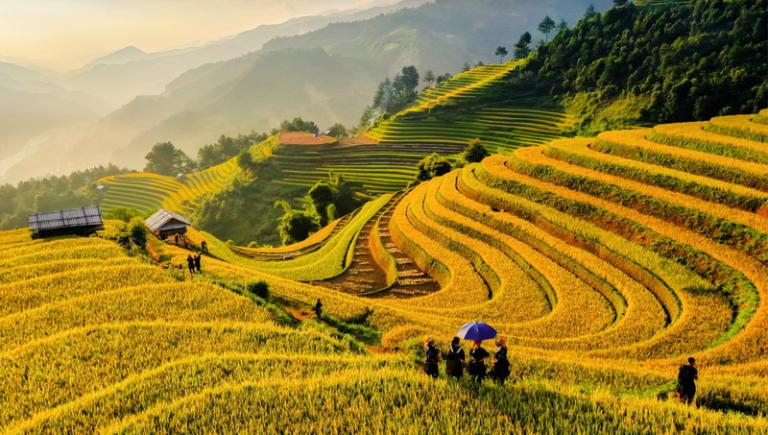
Why Visit Yen Bai?
Yen Bai province, tucked away among majestic mountains, verdant valleys, and glistening clean lakes, is a haven for everyone ready to get away from the busy city life, including environment lovers and cultural vultures. Let’s explore more the reasons Yen Bai ought to be on top of your travel schedule.
A Natural Haven
Some of Vietnam’s most amazing scenery may be found in Yen Bai; several of them still off the usual road. For those who enjoy the natural surroundings—lush forests, undulating hills, and calm lakes that seem out of a dream—this is heaven. Yen Bai is the ideal place for a quiet getaway surrounded by tall mountains and unceasingly beautiful fields.
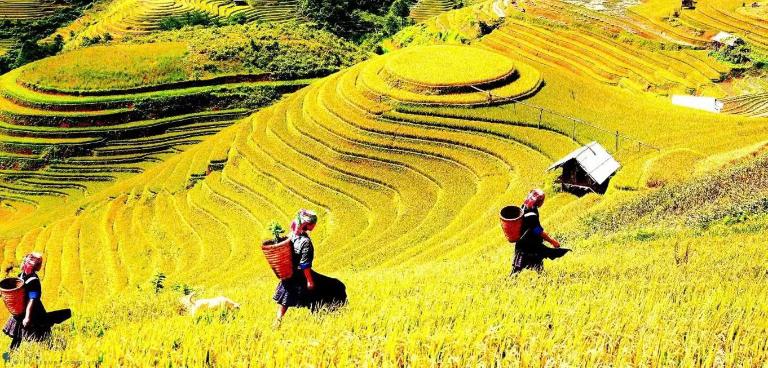
Particularly in Mu Cang Chai, the rice terraces of the province are among their most recognizable elements. Local people over millennia have meticulously constructed these terraces, producing a sequence of exquisite stairs down into the valley below. Whether you’re traveling during the golden rice harvest season or following the flooding of the fields, the terraces provide a breathtaking view difficult to rival anyplace else in Vietnam.
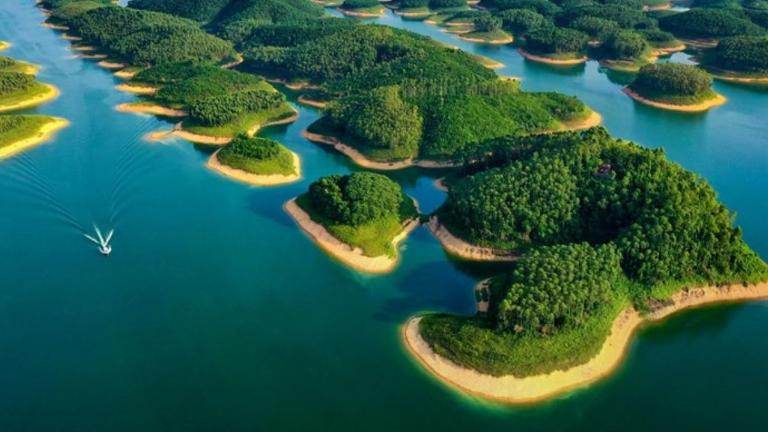
Yen Bai also boasts a number of immaculate lakes, including Vietnam’s third-largest reservoir, Thac Ba Lake Rarely encountered in more tourist-heavy places, here you may have quiet boat trips surrounded by emerald waterways and lush vegetation.
Rich Cultural Heritage
Yen Bai provides a remarkable window into Vietnam’s rich cultural tapestry in addition to natural beauty. Among the various ethnic minority groups living in the province—the Thai, H’mong, and Tay—each with own languages, cultures, and traditions—are For millennia, these people have kept their customs; visiting Yen Bai lets you personally encounter these customs.
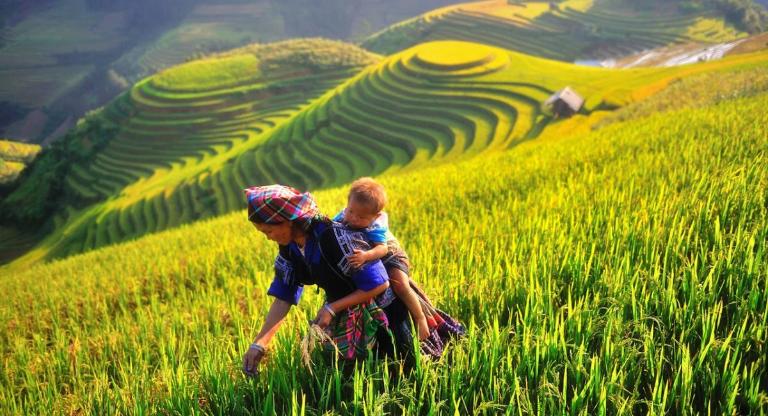
Apart from the friendly welcome of the residents, you can discover colorful celebrations, traditional dances, and distinctive handicaps reflecting the rich cultural legacy of the region. Held yearly in September, the Mu Cang Chai Rice Terace Festival honors the harvest season with events, regional cuisine, and lots of chances to see the way of life of the area.
Adventure and Exploration
Yen Bai offers lots of chances for hiking, trekking, and off-the-beaten-path trail exploration for people that enjoy adventure. There is never a shortage of activities to keep you occupied whether your trip is through the deep forests around Mu Cang Chai, ascending to the highest elevations for panoramic views of the terraces, or visiting small towns to take in local way of life.
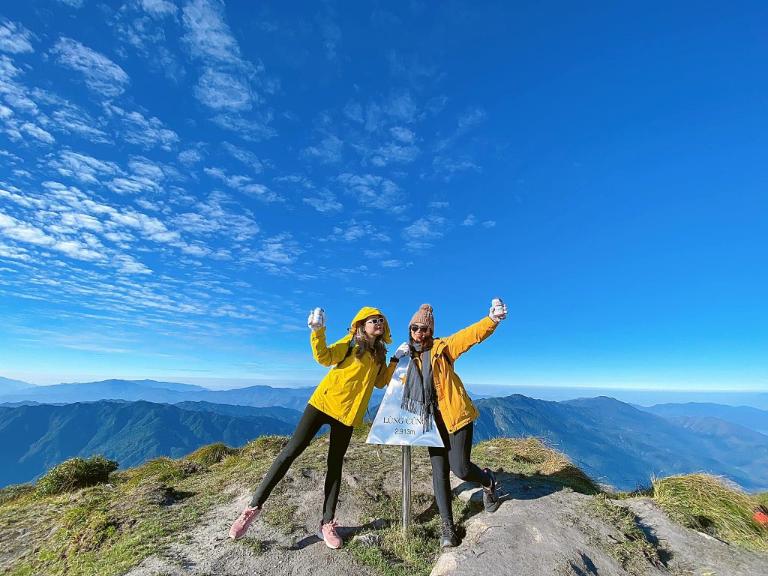
Yen Bai’s varied topography provides both easy and difficult paths ideal for outdoor lovers. You might climb to secret waterfalls, ride the twisting roads linking little towns, or even try your hand at lake fishing. Yen Bai presents an exciting blend of adventure and exploration among its breathtaking surroundings regardless of your taste.
Best Time to Visit Yen Bai
Timing is everything in Yen Bai travel planning. Although this lovely area in Northern Vietnam has unique appeal in every season, some months stand out for their unmatched beauty and rich immersive experiences they provide.
Spring (February to April): Blossoming Landscapes
Yen Bai sees spring as a season of rebirth. Trekking and outdoor exploration find perfect conditions in these months since the temperature is cool and pleasant. The area comes alive with vivid peach and plum blossoms, softly pink and white decorating the hill sides. Watching the rice terraces being ready for the planting season is especially fantastic since local farmers flood the fields with water, producing glistening mirrors beneath the sun.
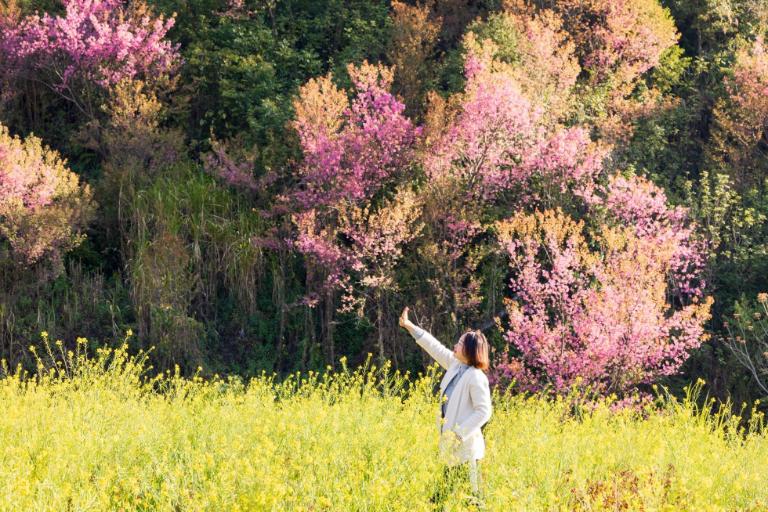
Summer (May to August): Lush Greenery
Summer in Yen Bai is related with rich vegetation. This is when the rice terraces are most lushest, creating an amazing view of lush fields running indefinitely over the mountains. Although the temperature is warmer and there is sporadic rain, it accentuates the color of the terrain. Additionally the greatest times to visit Mu Cang Chai for its breathtaking terraced fields and Thac Ba Lake for water sports are here.
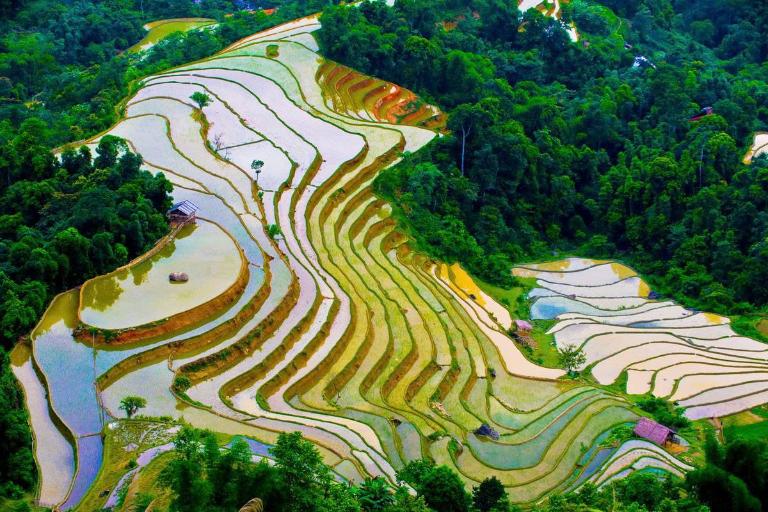
Autumn (September to November): Golden Harvest
Probably the best season to visit Yen Bai is autumn. Beginning the harvest season, the rice terraces take on a beautiful golden tint that defines one of Vietnam’s most famous scenery. For photographers and nature lovers, the cool, clear air and breathtaking views create heaven. Events like the Mu Cang Chai Terraced Rice Fields Festival at this period give your trip more cultural flavor.
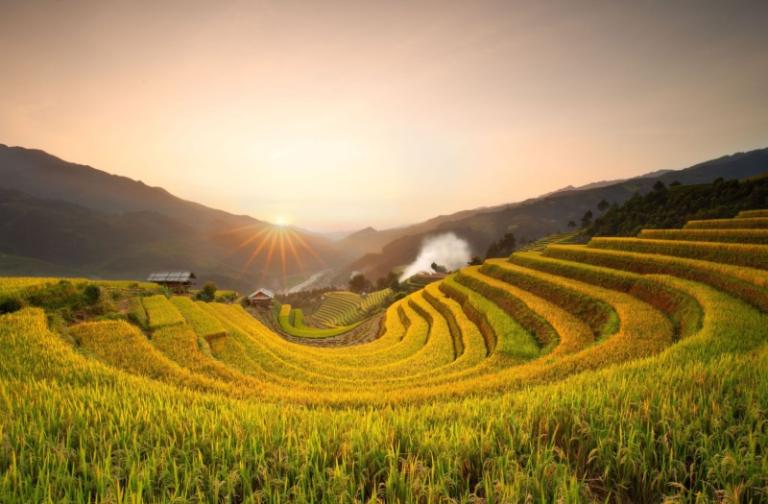
Winter (December to January): A Peaceful Retreat
Yen Bai’s winter is a more subdued season ideal for those looking for peace. Particularly in higher heights, the temperature drops dramatically; however, the foggy mountains produce an ethereal quality. While the terraces lie fallow, sitting by a warm fire in a traditional stilt house or drinking hot tea with residents is quite consoling.
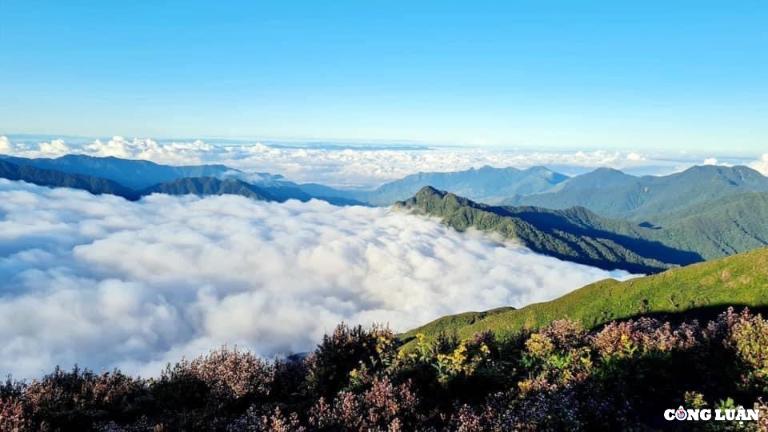
Let’s see more: Best Time to Visit Yen Bai: Seasonal Highlights & Travel Tips
How to Get to Yen Bai
Arriving at Yen Bai is an adventure in and of itself since the trip provides breathtaking views of Vietnam’s countryside. Yen Bai, tucked away in the northwest, fits many budgets and tastes since it is conveniently reachable by several kinds of transportation. Here’s how you reach Yen Bai whether your trip is single, family holiday, or group of friends looking for adventure:
1. By Road: The Most Flexible Option
Road is the most often used and flexible means of getting to Yen Bai. Depending on their tastes, travellers can ride motorbikes, buses or private cars.
Private Cars or Taxis
Hiring a private car or cab is a great option if comfort and convenience are your priorities. This mode lets you create your own timetable, stop for refreshments or pictures along the road, and have a more customized travel. Depending on traffic and the precise location in Yen Bai, the travel from Hanoi takes 4–5 hours.
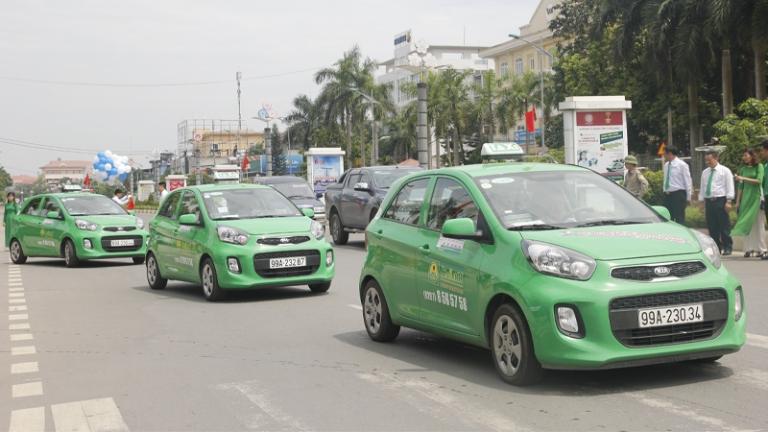
Motorbike Adventures
Riding a motorbike to Yen Bai is an amazing adventure for thrill-seekers. Rising through rich hills, green valleys, and historic towns, the National Highway 32 presents an amazing path The roads might be difficult, particularly in the wet season, hence be sure you have appropriate safety gear.
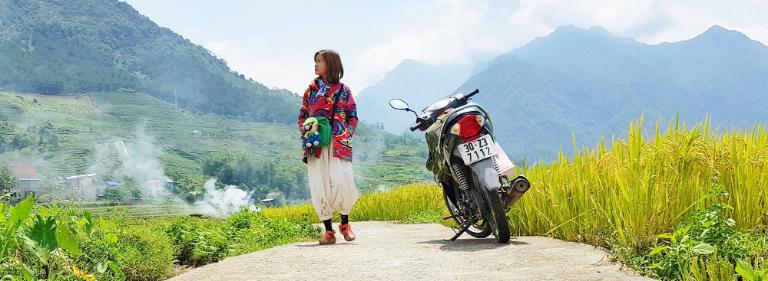
Buses: Affordable and Convenient
Budget visitors often choose buses to Yen Bai. From Hanoi to Yen Bai, several bus companies perform daily operations using regular to deluxe sleeper buses. Starting at 200,000 VND, the 4–6 hour trip is reasonably priced and takes. Tickets may be purchased online or at bus stations such as My Dinh or Giap Bat.
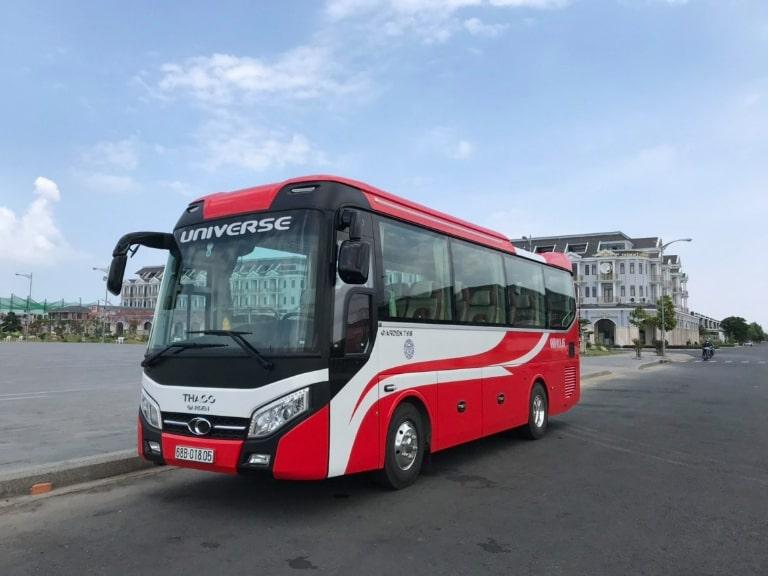
2. By Train: Scenic and Relaxing
Particularly for those who appreciate slow travel, getting by rail to Yen Bai is an enchanted experience. Regularly running trains from Hanoi to Yen Bai provide a range of classes including soft or hard seats, or sleeper compartments.
- Pros: The train trip offers breathtaking views of mountains, rivers, and rice terraces, therefore transforming the travel component of the adventure. It lets you stretch out during the ride and is very cozy.
- Cons: With the trip taking roughly six to seven hours, rail travel is slower than road choices even if it is beautiful.
Tickets bought at Hanoi Railway Station or booked online via Vietnam Railways’ official website Early bookings are advised, particularly in line with popular travel times.
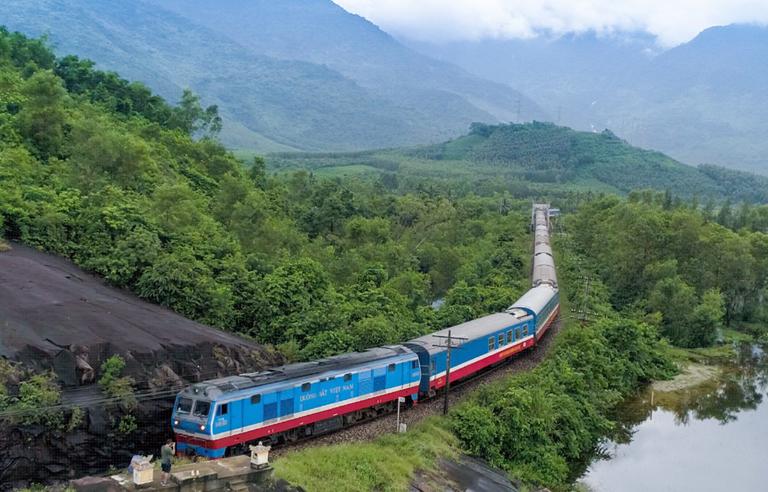
3. By Air: For Speedy Access
Yen Bai does not have an airport of its own, hence visitors can fly to the nearest big airport, Noi Bai International Airport in Hanoi. From there, you can carry on road or rail toward Yen Bai. Hanoi is conveniently connected to many local and foreign locations, hence choosing a flight is simple. You can rent a private car, cab, or bus to Yen Bai following landing. Including the road trip, the whole travel duration can run from six to seven hours.
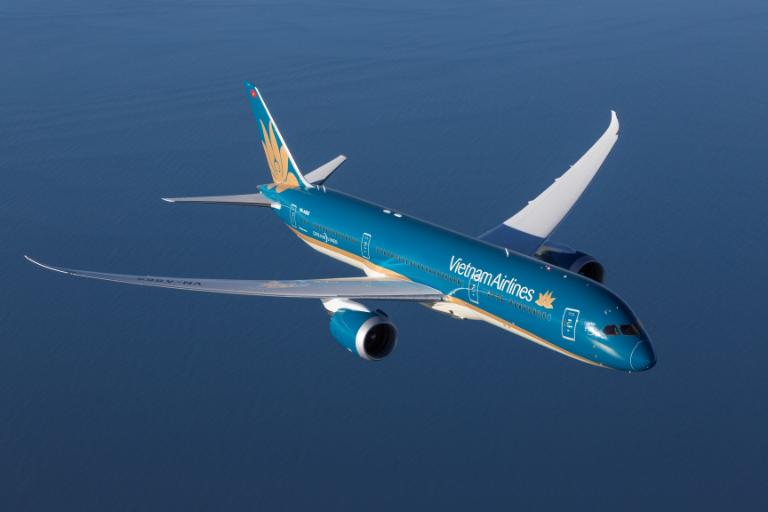
4. By Tour Packages
Many of the Hanoi tour companies provide Yen Bai all-inclusive packages encompassing travel, lodging, and guided activities. Those who wish a stress-free experience and access to local knowledge may find this alternative perfect. Stops at Mu Cang Chai, Thac Ba Lake, and other well-known Yen Bai locations abound on tour packages.
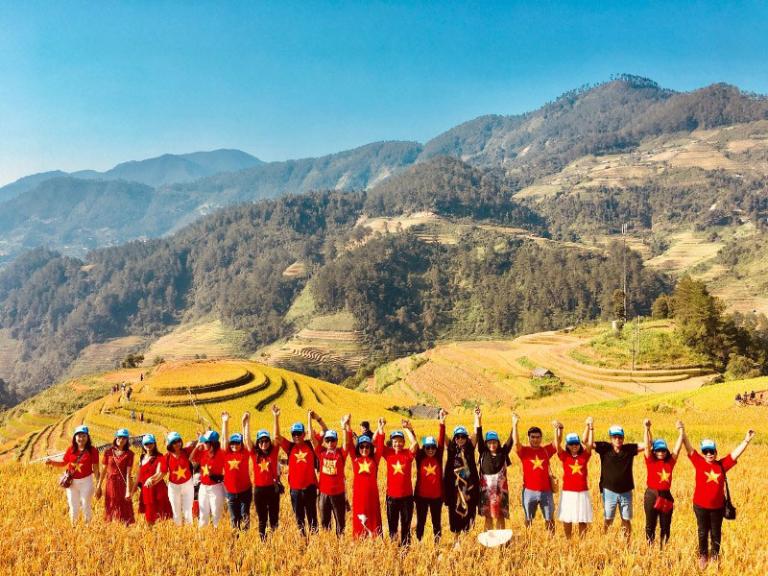
Top Destinations in Yen Bai
Yen Bai, tucked away in Vietnam’s northwest, is a treasure store of breathtaking scenery and cultural diversity. From charming towns bursting with history to terraced rice fields reaching the horizon, the province presents a special appeal that attracts both peace seekers and adventurers. Here are some of Yen Bai’s most intriguing locations:
1. Mu Cang Chai – The Iconic Rice Terraces
Mu Cang Chai is the crown jewel of Yen Bai, celebrated for its amazing terraced rice fields that slink down the mountainsides like golden ribbons. Among the most photographed sites in Vietnam, these famous settings have been identified as a national legacy site. During the harvest season, from September to October, when the fields glisten in gold and green beneath the sun, the terraces are most mesmerizing.
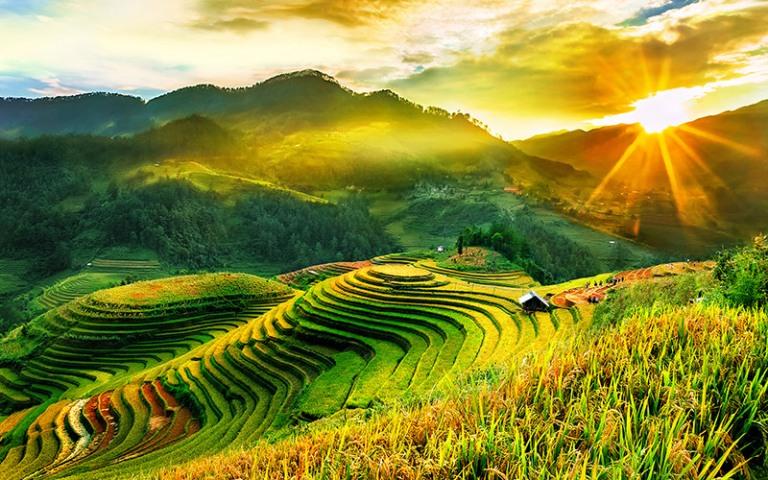
Through picturesque walking paths, visitors to Mu Cang Chai can discover the terraced farms and really experience the amazing vistas and rich local culture. La Pan Tan and Che Cu Nha villages provide chances to see traditional farming methods and engage with the Hmong people, who are quite proud of their background.
2. Thac Ba Lake – The Emerald Gem
Considered the “Halong Bay of the Mountains,” Thac Ba Lake is a tranquil refuge in Yen Bai. Over 1,300 limestone islets found in this large freshwater lake create an intriguing scene ideal for leisure and discovery. Both photographers and environment enthusiasts will find Thac Ba Lake to be the perfect haven since its calm waves mirror the rich vegetation all around it.
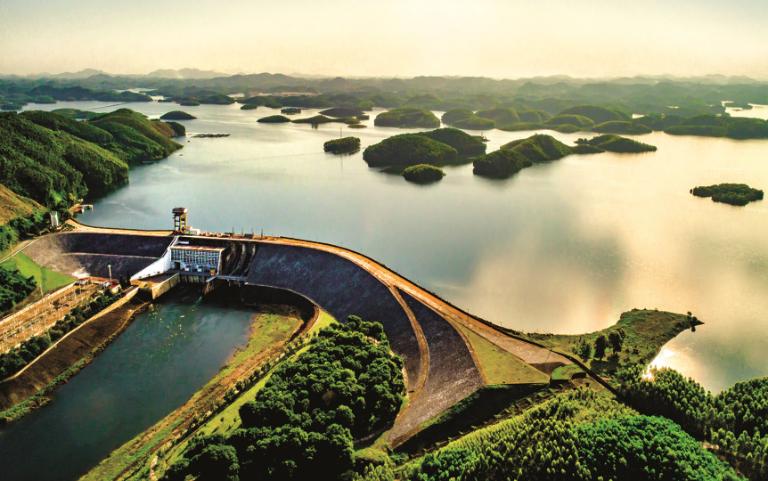
Popular activity is boat trips, which let guests negotiate the maze of islands and enjoy the peaceful splendor. Visiting Thuy Tien Cave, renowned for its ethereal stalactites and enchanted atmosphere, adventurous visitors will find The Dao and Tay ethnic communities invite guests to their homestays, so providing insights into their customs and cuisine, so enhancing a cultural experience.
3. Ta Xua – A Paradise for Cloud-Chasing
Ta Xua is becoming well-known among photographers and explorers as Vietnam’s top cloud-chasing location. High in the mountains, this isolated place provides a surreal sensation of wandering among a sea of clouds. Best seen from November to March, the phenomena generates a dreamlike environment as the clouds move across the valleys below.
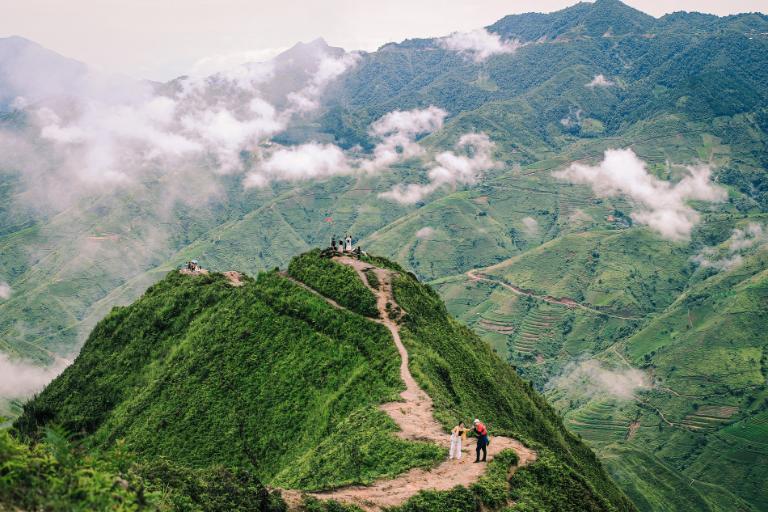
Dinosaur Spine, a little ridge with breathtaking views of the cloud-covered terrain, is among the must-visit locations in Ta Xua. Hiking this ridge is an exciting adventure combining unforgotten natural beauty with challenging terrain. Beyond cloud-chasing, Ta Xua offers a chance to visit traditional Hmong villages, where visitors may experience mountain hospitality and learn about regional customs.
4. Nghia Lo Town – A Cultural Hub
Offering guests a window into the rich customs of the Thai ethnic group, Nghia Lo Town acts as a cultural center of Yen Bai. Nestled in verdant valleys surrounded by gorgeous rice fields, Nghia Lo is a harmonic fusion of natural beauty and cultural legacy.
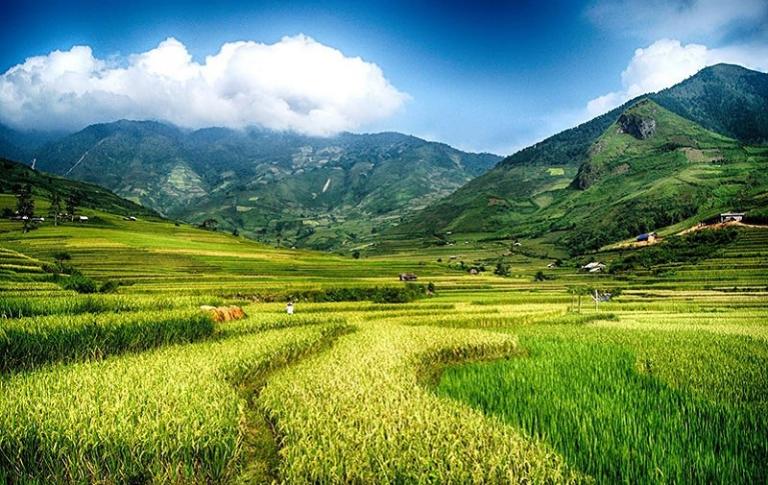
A centerpiece of the town, the second-largest rice valley in Vietnam—the Muong Lo Valley—offers a breathtaking setting for exploring and picture. Visitors can engage in celebrations, music events, and traditional Thai dances among other cultural pursuits. Local delights like thit trau gac bep (smoked buffalo meat) and com lam (bamboo-tube rice) will thrill foodies.
5. Khau Pha Pass – A Gateway to Heaven
Often considered as a portal to heaven, Khau Pha Pass is among the most amazing mountain crossings in Vietnam. Thrill-seekers and environmentalists especially enjoy this meandering road for its tremendous bends and amazing views of valleys, terraced crops, and far-off mountains.
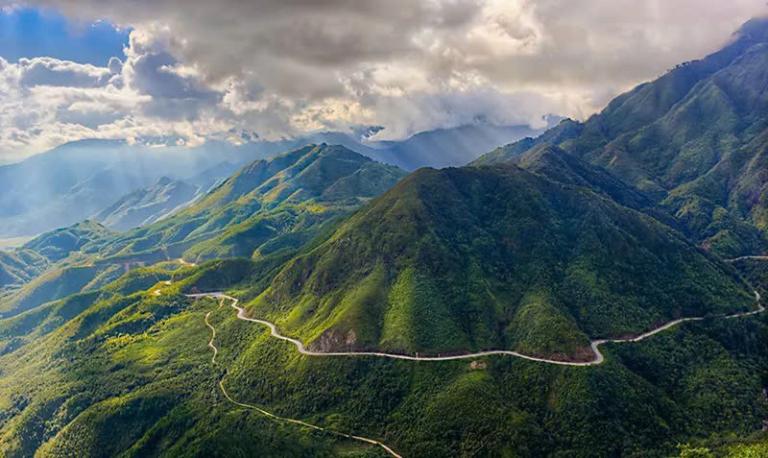
Khau Pha Pass becomes even more spectacular during harvest season as golden rice terraces cover the terrain. For paragliding aficionados, the pass is also a hub providing a bird’s-eye perspective of the beautiful surroundings. Nearby towns like La Pan Tan and Che Cu Nha give chances to engage with residents and discover their way of life.
6. Suoi Giang – The Land of Ancient Tea Trees
Renowned for their old Shan Tuyet tea bushes, Suoi Giang is a peaceable haven on Mount Fansipan’s slopes. Some over 300 years old, these trees yield a special kind of tea that is much sought for its unique taste and health advantages.
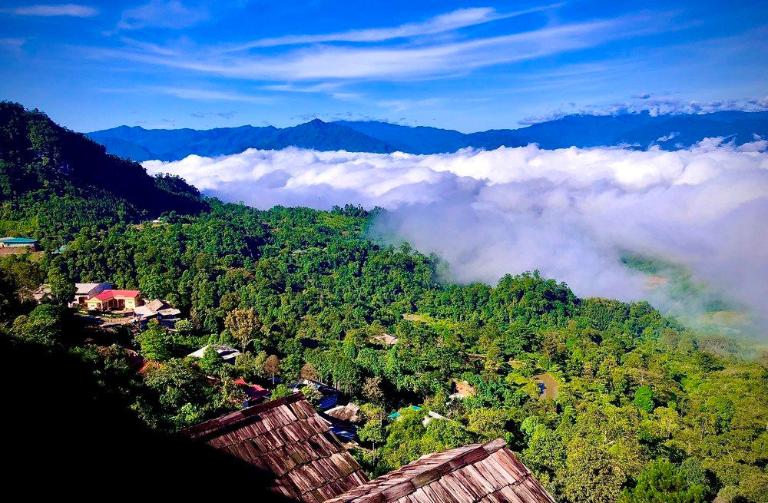
Along with learning about the ancient techniques of tea growing, visitors may tour the verdant tea estates and even help with harvesting. Suoi Giang’s chilly, misty climate accentuates its appeal and makes it a perfect place for rest and renewal. Discovering surrounding waterfalls and woodlands will also provide hikers an exciting element to their trip.
7. Tram Tau Hot Springs
The ideal place to relax following a day of discovery is Tram Tau Hot Springs. Tucked up among the mountains, these natural hot springs provide mineral-rich waters thought to have therapeutic value.
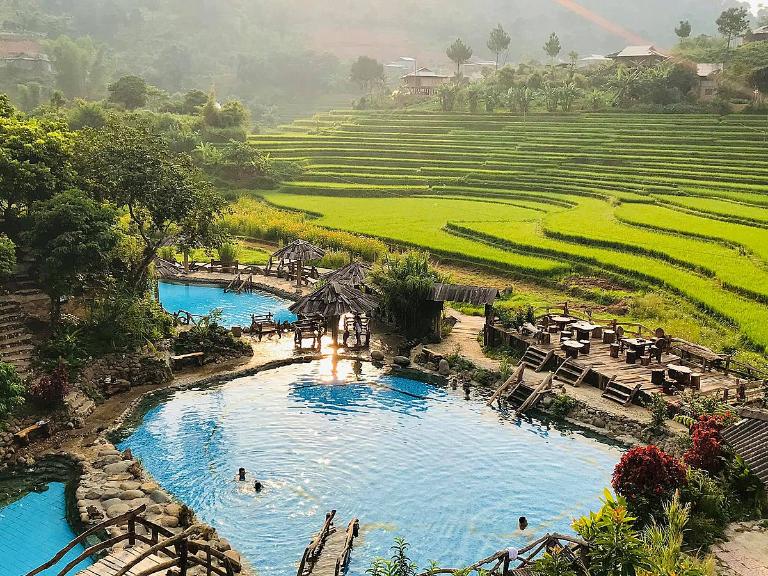
The calm environment the hot springs offer lets guests soak and unwind while taking in the views of the mountains. For those wishing to stay longer, surrounding homestays provide a rustic but pleasant stay together with local hospitality and home-cooked food.
8. Cu Vai Village
A cultural treasure in Yen Bai, Cu Vai Village provides an insight into Hmong people’s life. Nestled amid terraced fields and breathtaking mountain views, the town is a refuge for photographers and cultural vultures.
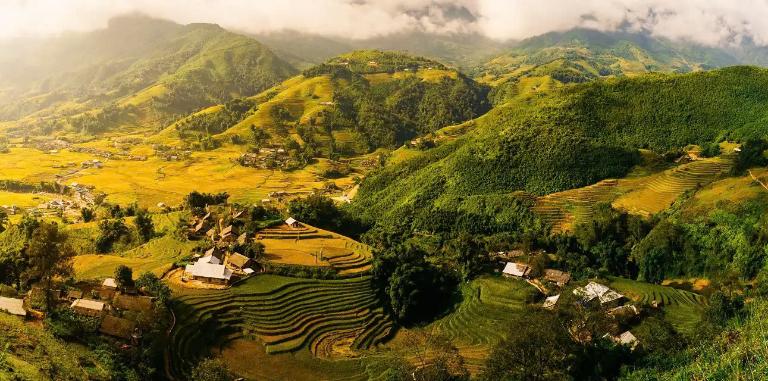
Visitors can engage in traditional crafts including dying and weaving as well as try their hand at producing their own works. With chances to learn about the customs, cuisine, and daily life of a local family, staying in a homestay with them deepens your connection to the community. Cu Vai’s little, meandering paths are ideal for leisurely walks and getting breathtaking landscape shots.
9. Van Chan District – The Hidden Gem
Off-the-path, Van Chan District provides a blend of ethnic authenticity and natural beauty. Travelers looking for a more peaceful experience away from the throngs will find this less well-known destination ideal.
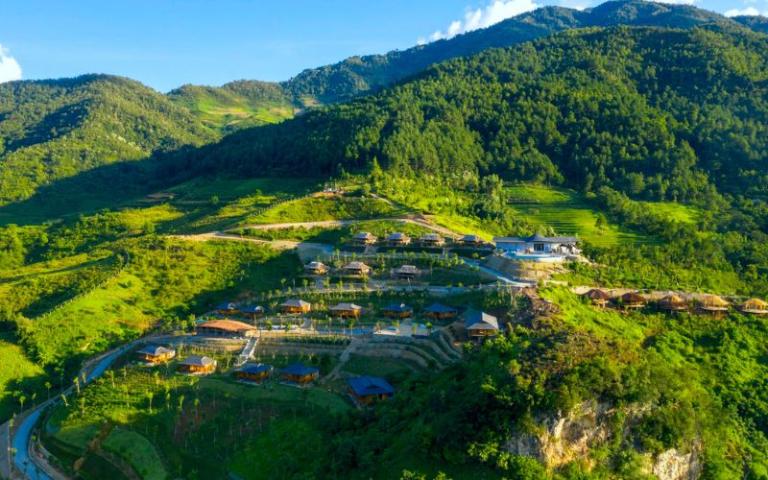
A feature of Van Chan, Pu Nhi Farm combines sustainable farming methods with eco-tourism. Explore Tham Hoc Cave, a secret treasure with fascinating rock formations and an enigmatic appeal as well. For individuals wishing to commune with environment and community, Van Chan is a fulfilling place since interacting with nearby farmers offers a different viewpoint on rural life in Vietnam.
10. Tu Le – Gateway to Adventure
Many of the adventures in Yen Bai begin in the little village Tu Le. Travelers coming to Mu Cang Chai or Khau Pha Pass often visit Tu Le, a popular destination noted for its kind hospitality and breathtaking scenery.
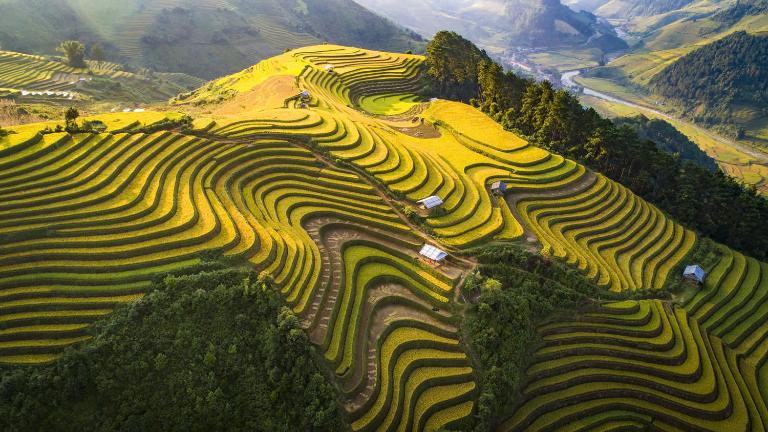
The town is well-known for its sticky rice, a local favorite commonly eaten alongside upland chicken. Apart from its gastronomic pleasures, Tu Le is a perfect place for trekking and photography since it provides breathtaking views of rice farms and rich hills. A great approach to unwind following a day of discovery is to enjoy a leisurely soak in the natural hot springs of the area.
Local Cuisine: The Taste of Yen Bai
Deeply ingrained in the customs of its ethnic minority communities, Yen Bai cuisine is a treasure store of unusual and sumptuous meals. From bold specialties to filling main meals, the cuisine here promises a sensory journey for every food lover. Let’s investigate some of Yen Bai’s most mouthwatering recipes closer-up.
1. Muong Lo Black Chung Cake
One of the main specialties of the Thai ethnic population in Yen Bai, Muong Lo Black Chung Cake is a variant of the classic Banh Chung. This meal is unique in color—black—achieved by combining sticky rice with ash from burned forest leaves.
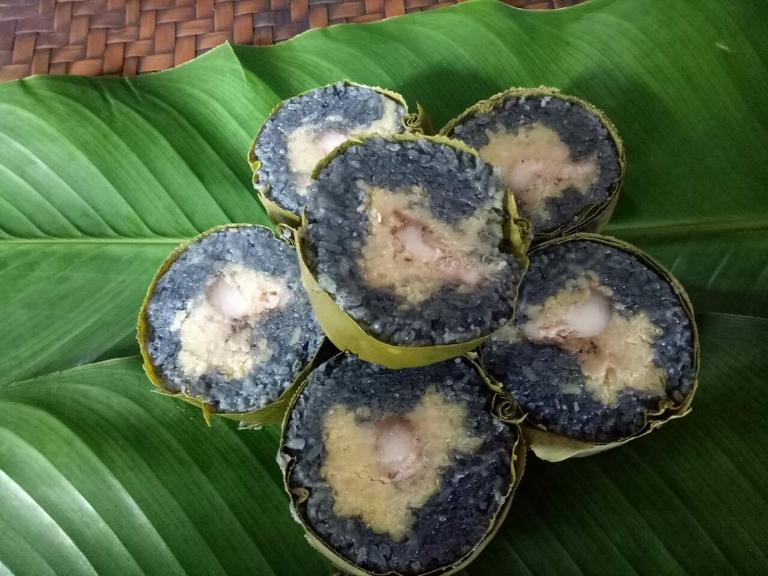
Often made during holidays, this cake, stuffed with luscious green beans, fatty pork and aromatic spices, represents thanksfulness. Reflecting the cultural core of the area, Banh Chung Den is a must-try delicacy with rich taste and chewy texture.
2. Yen Bai Stir-fried Larvae
Yen Bai stir-fried larvae are a tasty, nutrient-dense meal perfect for the daring eaters. Stir-fried with garlic, chilli and aromatic herbs, silkworm larvae have a rich, nutty texture with a fiery taste. Popular snack in nearby markets, this meal is a terrific way to enjoy Yen Bai’s rich and distinctive tastes.
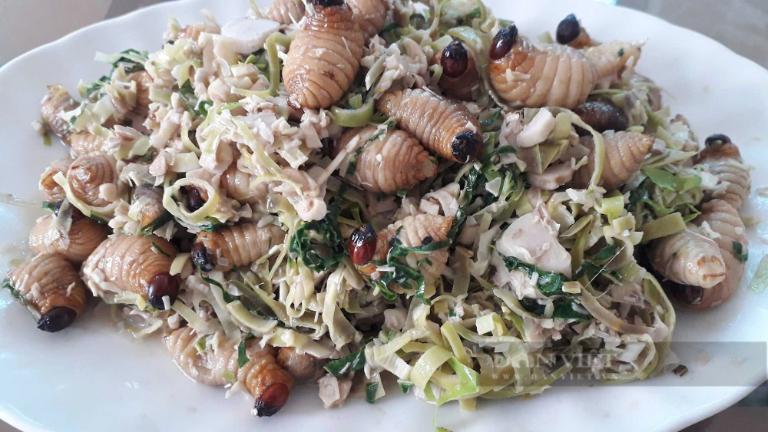
3. Muong Lo Shrimp Paste
Muong Lo is well-known for its delicious shrimp paste as much as for its breathtaking surroundings. Made by fermenting shrimp with salt, this classic condiment produces a spicy sauce that complements fresh veggies or Lam Rice really nicely. Many residents find that without a sloshful of this thick sauce, no meal is complete.
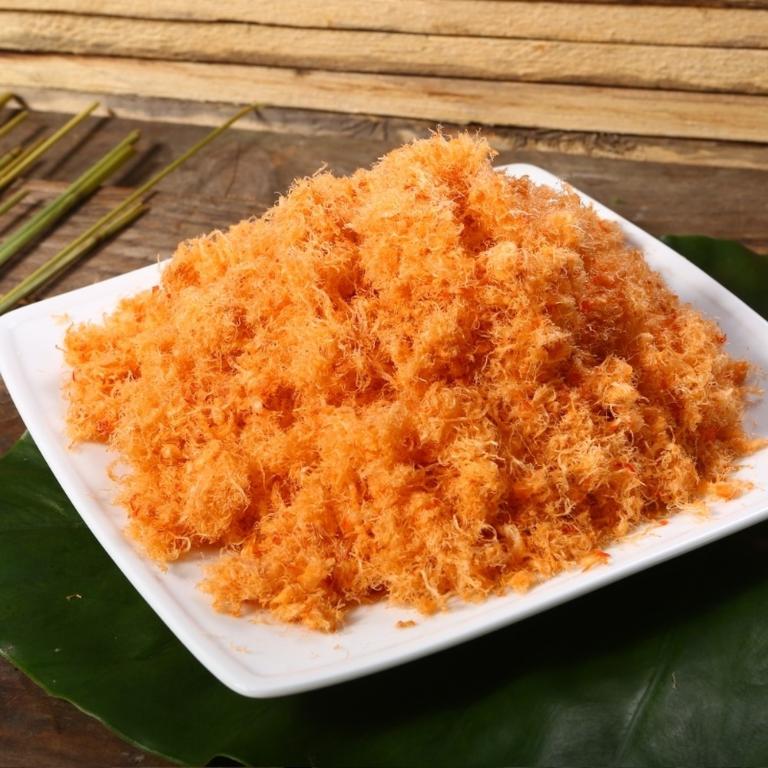
Explore Muong Lo Shrimp Paste: A Traditional Delicacy You Must Try in Yen Bai
4. Tu Le Sticky Rice
Tu Le Sticky Rice is legendary for its soft, chewy texture and strong scent. The rice is grown in the rich fields of Tu Le, where the unique taste of the rice results from the chilly mountain environment. Natural elements like pandan leaves, turmeric or butterfly pea blossoms give the grains their often vivid colors. Present with grilled chicken, roasted peanuts or Muong Lo shrimp paste, Tu Le Sticky Rice is a feast for the taste receptors as well as the sight.
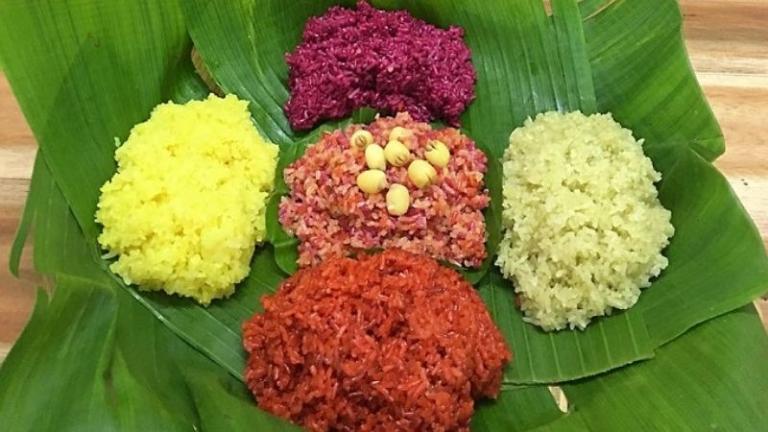
5. Grilled chicken with mac khen
Grilled chicken, marinated with mac khen, a local pepper with a distinctive fiery and sour taste, is another pillar of Yen Bai cuisine. Traditionally, the chicken is marinated and cooked over an open fire to produce soft meat imbued with aromatic, smokey spices. Combining this meal with fresh herbs or sticky rice makes it a gastronomic highlight for guests.
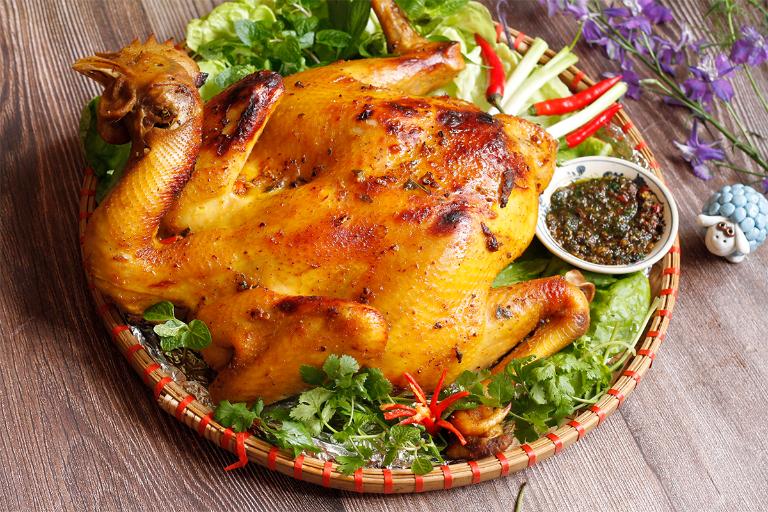
Practical Travel Tips for Yen Bai
Yen Bai presents beautiful scenery and an opportunity to investigate rural life. These useful travel pointers should help to ease your trip.
Accommodation Options
- Budget Guesthouses: Affordable guesthouses abound in towns including Yen Bai City and Mu Cang Chai. Prices range from $10 to $20 per night, providing only minimum conveniences including breakfast and Wi-Fi.
- Homestays: Staying in nearby homestays allows you to really encounter ethnic minority culture. Prices run from $15 to $30 every night and cover cultural events and home-cooked food.
- Mid-Range Hotels: Mid-range hotels in Yen Bai City and environs provide contemporary conveniences for a little more comfort. You should budget $30 to $50 every night.
- Luxury Stays: Though few, luxury resorts surround well-known landmarks like Thac Ba lake. These resorts run $70 a night.
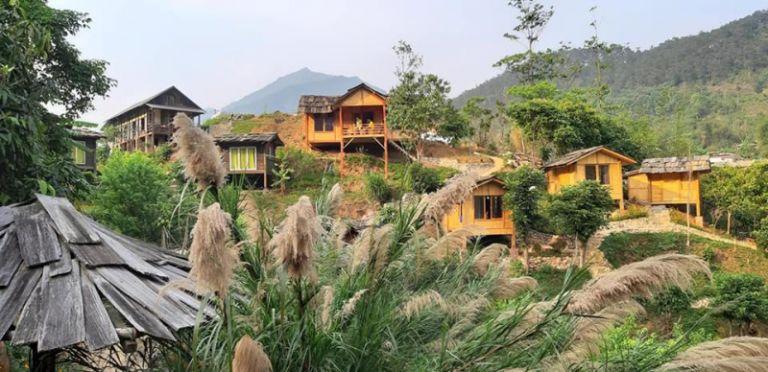
Essential Items to Pack
- Comfortable Shoes: Exploration of Yen Bai’s breathtaking rice terraces and mountainous surroundings depends on a decent set of walking shoes.
- Rain Gear: Particularly if you visit during the rainy season (May–September), pack a lightweight rain jacket for the erratic weather.
- Camera & Extra Batteries: Don’t overlook your camera to record Yen Bai’s amazing landscape. To make sure you miss no photo possibilities, pack additional batteries and memory cards.
- Warm Clothing: Particularly if you are visiting in fall or winter, pack a warm jacket for cooler evenings since nighttime temperatures might drop greatly.
- Sun Protection: During outdoor activities, sun protection is mostly dependent on a hat, sunglasses, and sunscreen.
- Small Backpack: While exploring, your needs including water, snacks, and camera will be handy carried in a daypack.
- Water Bottle: Especially on hikes, keep hydrated on your way about. Perfect would be a refillable water bottle.
- Health Kit: Along with hand sanitizer and bug repellant, a little first-aid kit will keep you ready for anything.
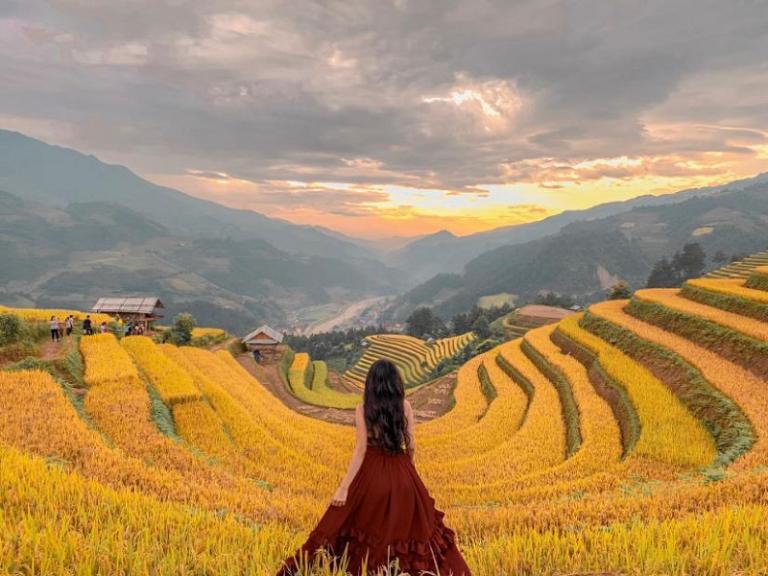
Every person who visits Yen Bai comes away with memories. For anybody visiting northern Vietnam, this must-see combines natural beauty, rich culture, and friendly residents. Yen Bai guarantees experiences you will treasure always, whether your interests are in seeing rice terraces, drinking Shan Tuyet tea, or fully engaging in vivid celebrations.
Related Posts:
- Top Attractions in Yen Bai: Explore Vietnam’s Hidden Gems
- Nghia Lo Yen Bai: A Peaceful Retreat in the Northern Vietnam
- Explore Mu Cang Chai Terraced Fields: A Hidden Gem in Vietnam
- Pu Nhu Waterfall in Yen Bai: A Breathtaking Escape into Nature’s Heart
- Must-Try Dishes in Yen Bai: A Culinary Adventure






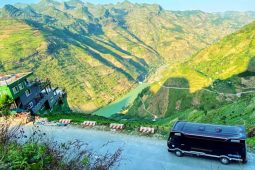




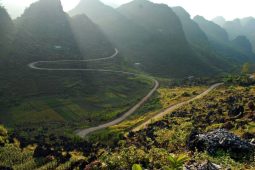
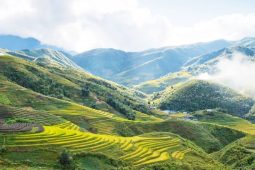

Be the first to comment!